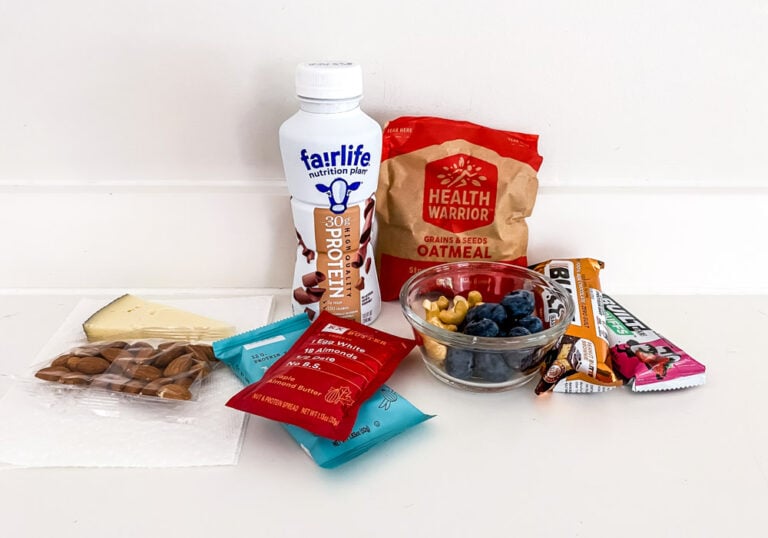My favourite way to start the day is a full English Breakfast or “Fry Up” or “Full Monty” as it’s affectionately called.
Whenever we go out for a treat or stay over at a hotel I always opt for the Full English. It is just a magnificent way to fill up in the day.
It’s truly the ultimate breakfast and is hearty and satisfying in every way. It’s something that you can eat at any time of the day too which I love.
It’s a meal that we use to judge the eating establishment by the quality and choice of the ingredients.
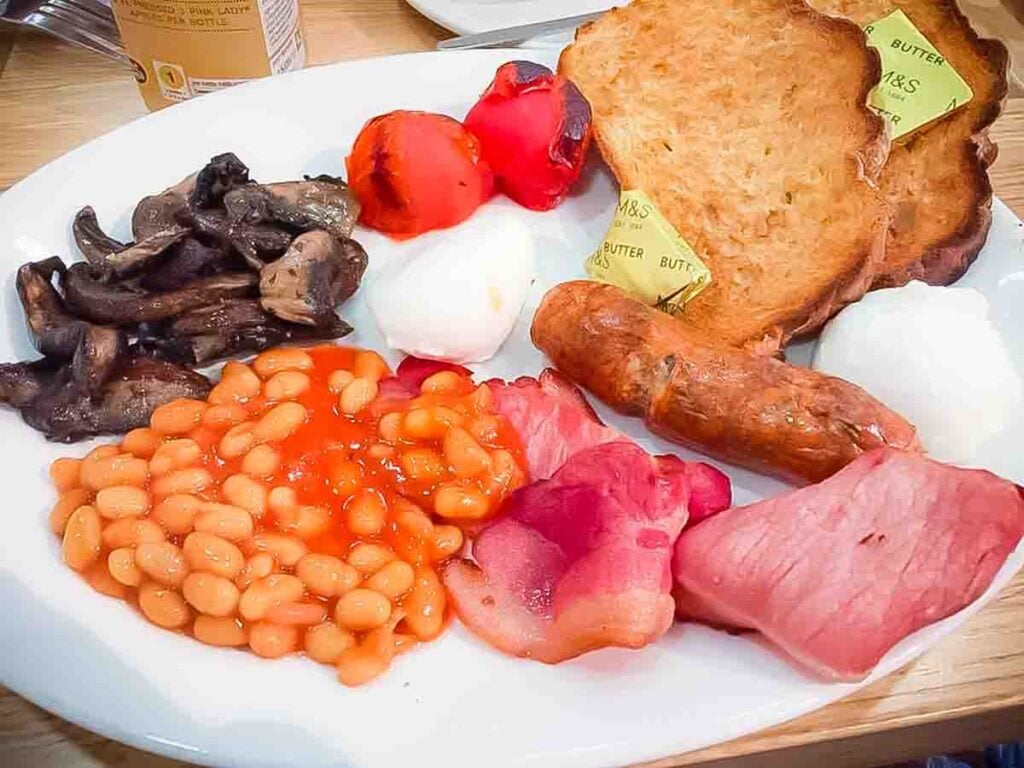
What is a Full English Breakfast?
A Full English breakfast usually consists of bacon, sausage, fried, poached or scrambled egg, mushrooms, baked beans, tomatoes, toast or fried bread and it’s served with tea or coffee and/ or juice.
Regional variations include adding Haggis and Tattie Scones ( which are very much like a hash brown but considered a flat bread) in Scotland, Soda bread in Ireland and Laverbread in Wales which is made out of local seaweed.
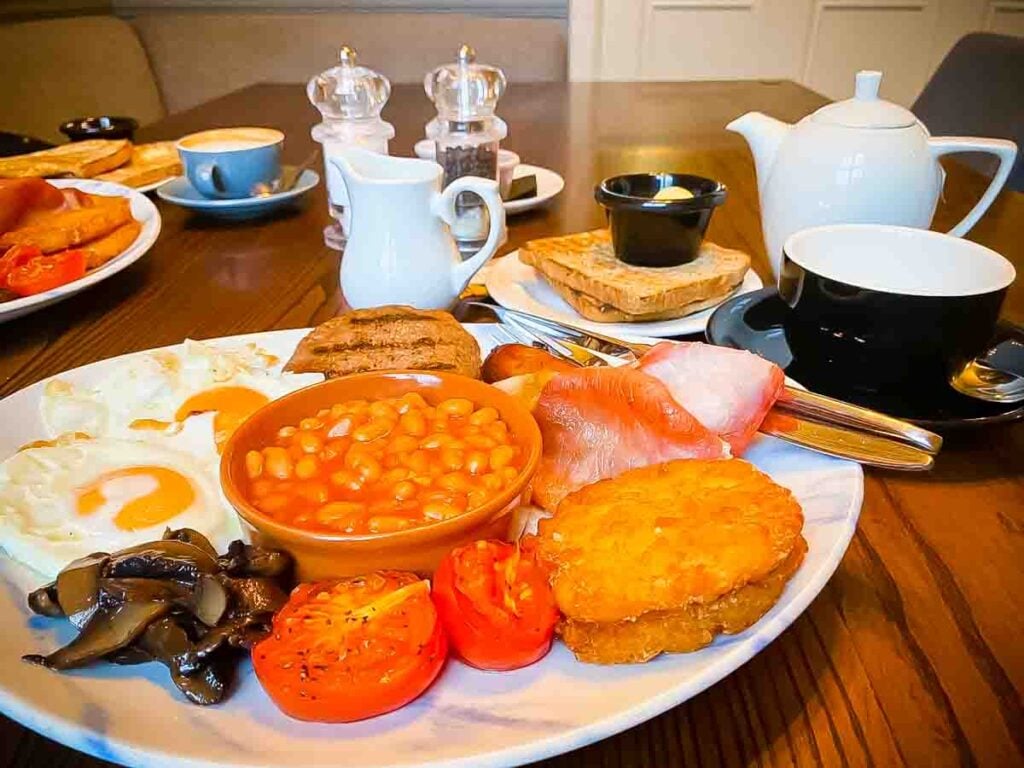
What is the History of the Full English Breakfast?
It goes back as early as the 14th/15th century and was a tradition at first of the landed gentry who used to enjoy a big breakfast before they went out to hunt.
It wasn’t plated up like we have it today but served as a breakfast feast with plates of halibut steaks, fried Whiting, stewed figs, pheasant, lamb, chicken, pigeon, kidneys, sausages with fried bread, pig, bacon and pork pies.
It was really more of a social event, to show off the wealth of the host.
In the Victorian era they prefered to make their breakfasts into very elegant affairs with exotic and traditional ingredients. They thought of it as a very civilised way to start the day.
Moving on to the Edwardian Era the Full English Breakfast became more common in hotels, bed and breakfasts, on trains and in meetings. The standard ingredients of bacon, egg, sausage, black pudding, baked beans, grilled tomato, fried bread and toast with jam or marmalade with tea or coffee or orange juice made it easier to prepare and it became more of a plated dish. The middle classes thought of it as a family meal and a great way to fill up with energy before the start of a full day’s work.
By the 1950’s it had filtered down to the working classes and was more commonplace throughout society and became the national breakfast dish that we know and love today.
( Picture: Breakfast with tea)
What is Black Pudding?
Black pudding is essentially a blood sausage and originates from Scotland and northern England.
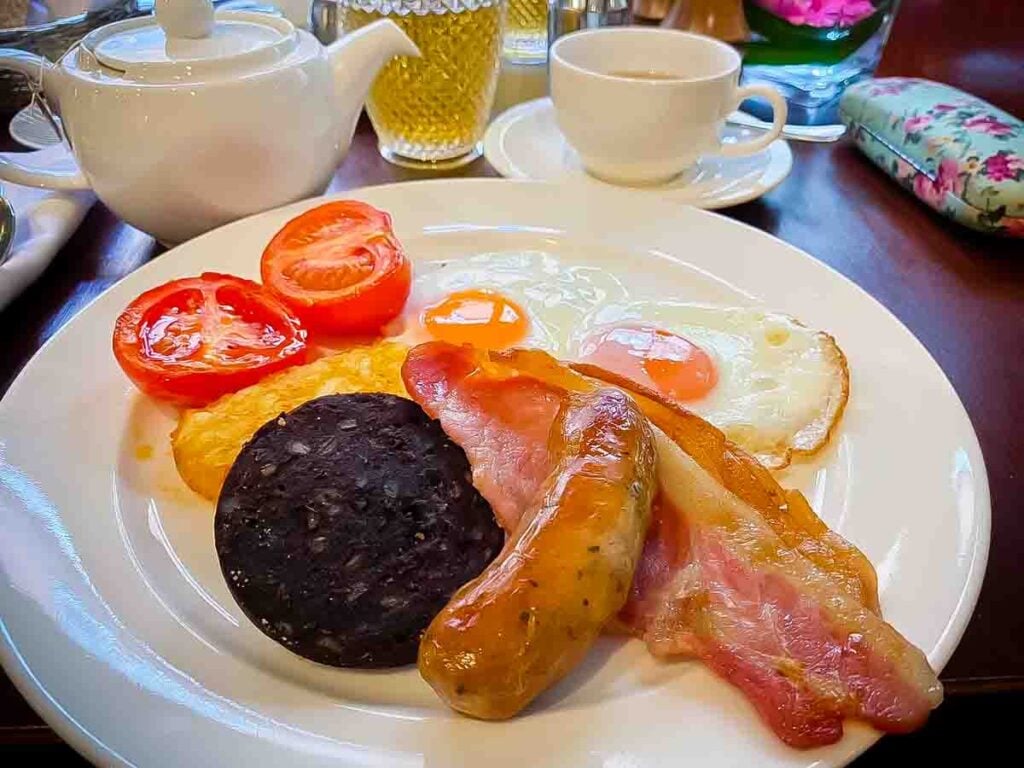
It is made using pork or beef blood mixed with a cereal such as oatmeal or barley and this is cooked until it is congealed. It can be grilled, fried, baked or boiled.
In the north of England it can be served whole as a meal and in the south it’s usually served in slices as part of the full English Breakfast.
It is considered to be a healthy option and a good source of protein, carb free and has very few calories. It is rich with iron and zinc and a great alternative to the sausage.
The Black Pudding dates back to 800 BC and was considered food for the poor and rich alike. It was famously part of breakfast banquets held by King Henry VIII at Hampton Court and was a known favourite of his.
Today Black Pudding can lead to heated debates due to its contents and you either love it or hate it.
What are Hash Browns?
Hash Browns are basically chopped and fried potatoes.
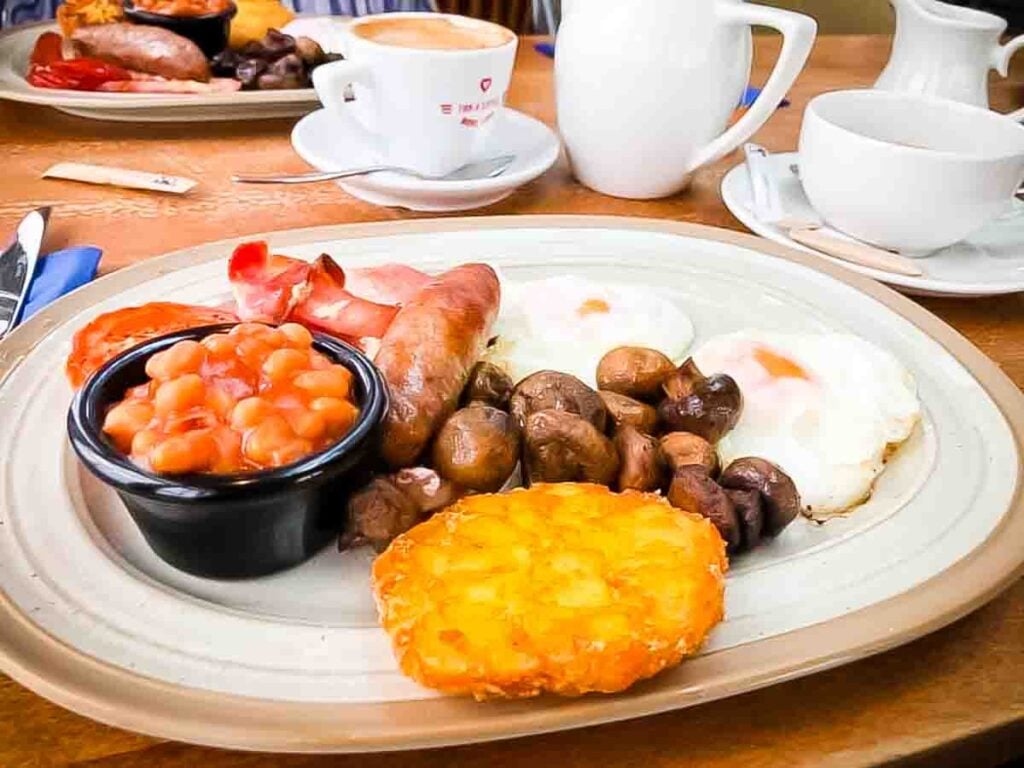
They originated from North America and started being part of breakfasts in New York City in the 1890s.
They were originally cold boiled potatoes that had been fried until browned and then turned over before serving, much like an omlette.
Today chefs make hash browns by grating potato or using riced potato which is then fried with onions until browned.
Condiments for a Full English Breakfast
What condiments should you serve with a Full English?
Typically Brown Sauce or Tomato Ketchup.
Variations on the Full English
I’ve seen a Full English Breakfast served in a jar which is just wrong on every level to me or you can always have a full English in a roll so you can enjoy it on the go.
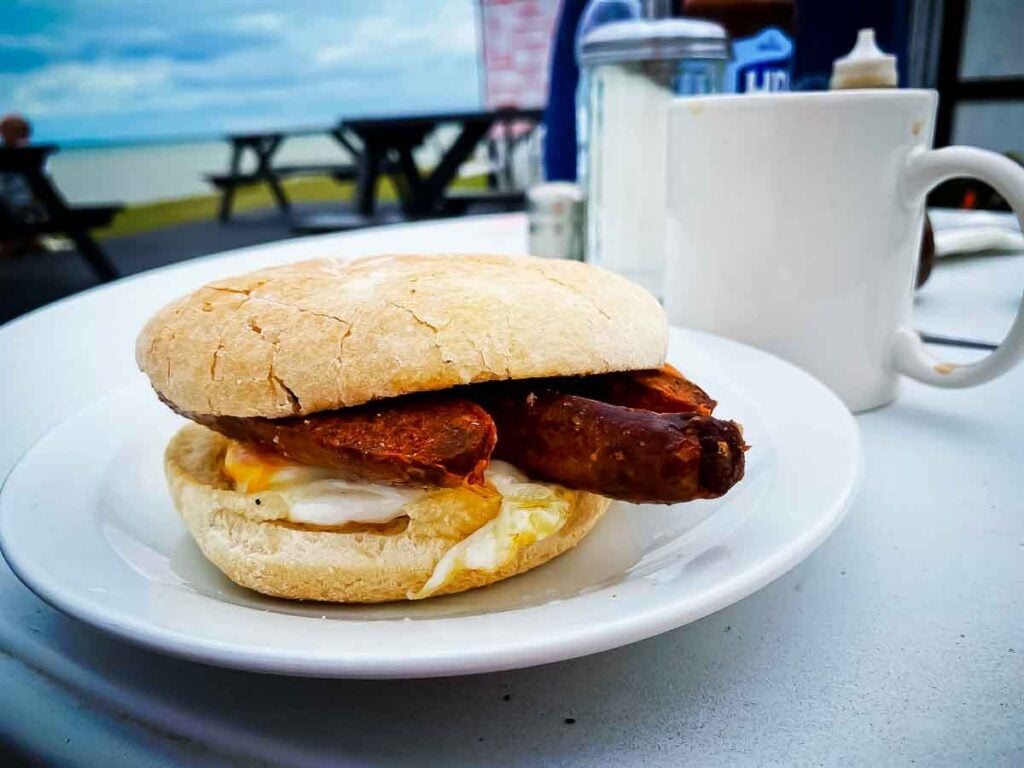
You can also cook it all in a specially designed frying pan which was great fun to use and less washing up.
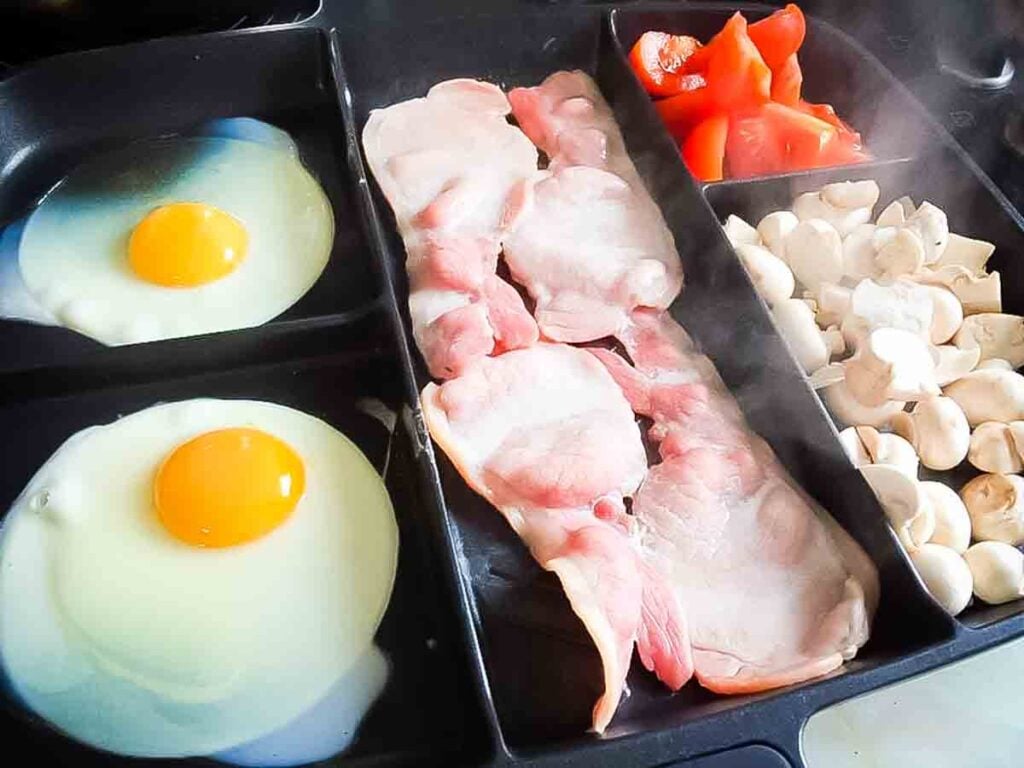
You can of course swap the meat for Vegetarian or Vegan options.
Conclusion
The Full English Breakfast is an English tradition and is served in all hotels and most eating establishments up and down the country.
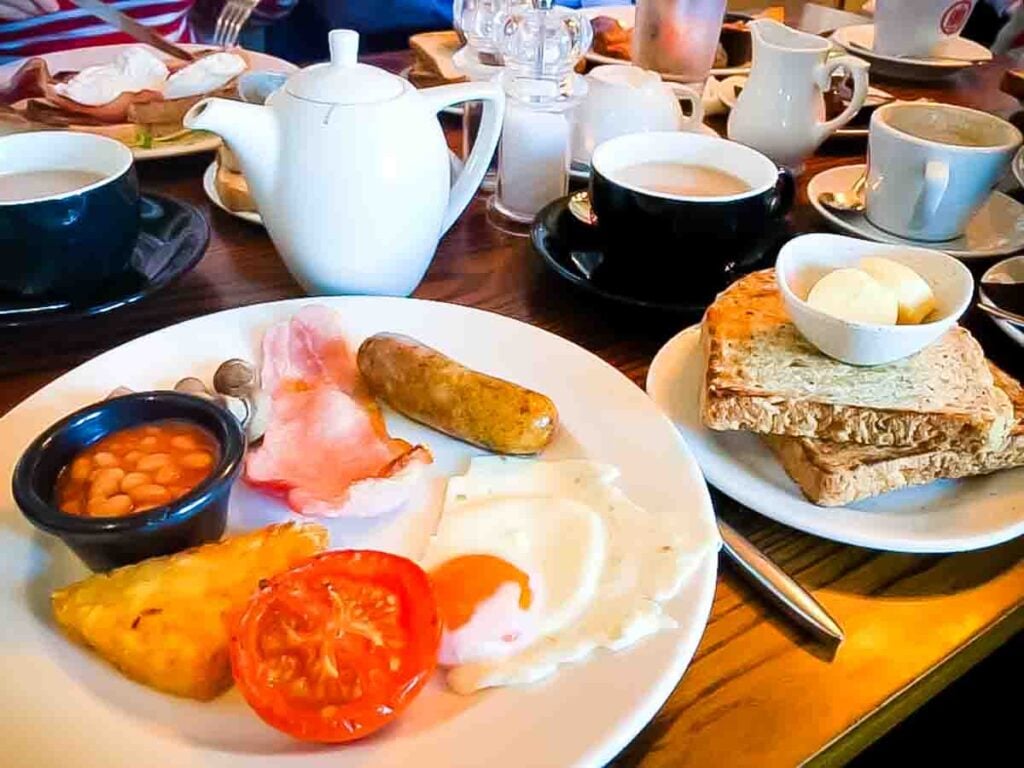
It’s a treat and makes you feel like you can conquer the world once you have finished. It’s full of nutrition and protein and contains most of the major food groups.
It has so many different variations and you can choose options to make it your own which I love. It can be big or small or put in a sandwich to have on the go. It’s such a versatile meal and one which everyone can enjoy.







